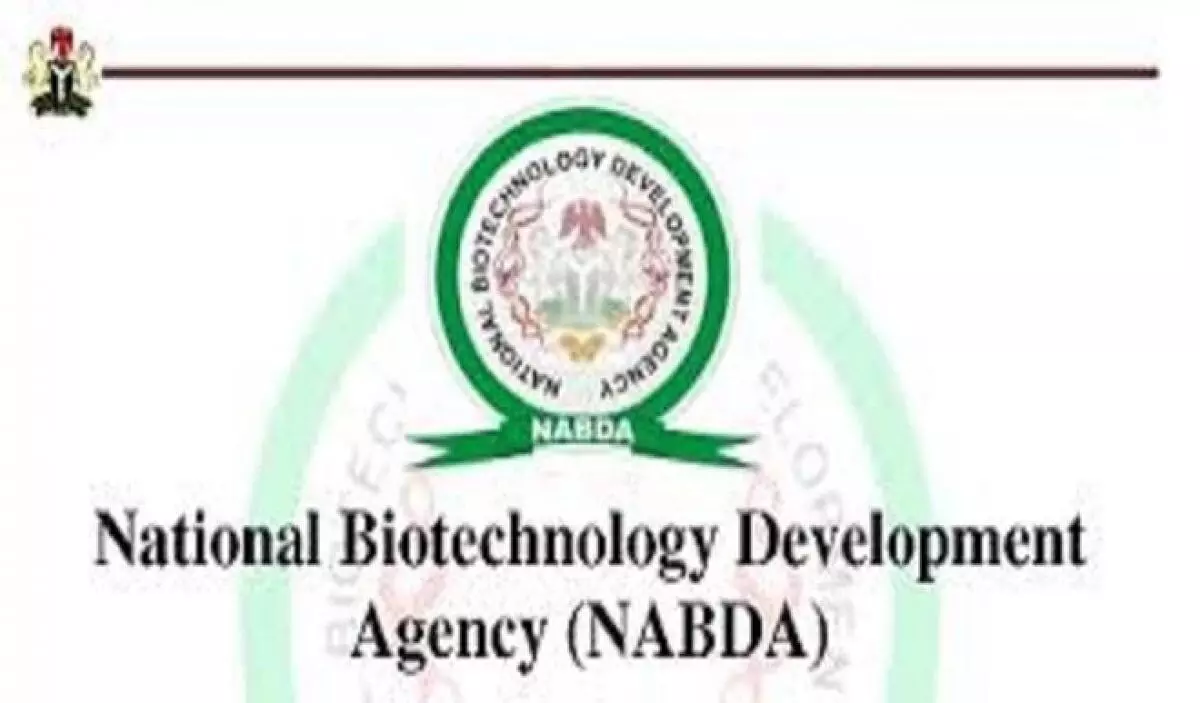- Home
- /
- More
- /
- Science & Technology
- /
- Biotech's impact to...
Biotech's impact to Nigeria's efforts to expand industrial base

One of the core mandates of the National Biotechnology Development Agency (NABDA) is to stimulate an environment that will respond to the needs of the nation's biotechnology industry.
It also includes responding to the research and development communities in relation to national and international concerns.
According to experts, biotechnology relates to the use of biology in solving problems and making useful products.
It deals with living organisms and the application of biology and other different techniques to change or modify products for human use. It is also known as "biological technology."
In recent years, biotechnology products and technologies have been used to fight diseases and reduce harm to our environment.
Since its establishment in 2001, NABDA has striven to live up to its mandates. Recently, it carried out researches in biotechnology priority areas.
Under the stewardship of Prof. Abdullahi Mustapha, the current Director-General, the agency has made some achievements in priority areas such as agriculture, health, industry, the environment, and other strategic sectors for national development.
Mustapha told journalists at the second edition of the NABDA media chat in Abuja that the agency's research enterprises were also creating opportunities for industrial development and revenue generation.
"Earlier this year, NABDA was granted a patent for its innovative system, called the Biomethanization System for Biodegradable Organic Feedstock," he said.
He explained that this stemmed from one of NABDA's flagship programs, the "Bioenergy Development Programme, Designed for Waste to Energy Generation," in which biodegradable organic waste was converted to biogas.
He said the conversion enabled heating, lighting, electricity generation, and biofertilizer.
Mustapha said to enhance mass adoption and sustainability of the technology in Nigeria, the agency developed a modular and portable biodigester system that was highly optimized to enhance process efficiency.
"The biodigester, which is available in different sizes, was conceived, developed, fabricated, and patented with many materials sourced locally.
"With the epileptic power supply being experienced across the country, households can acquire the small units of biodigesters for use with a reasonable amount of electricity generation for small domestic appliances."
"The patented biodigester is ready for commercialization, and interested stakeholders are welcome to enhance country-wide mass adoption," he said.
The NABDA Director-General said the agency's efforts to drive national development through partnerships were also yielding results, one of which was the recent grant the agency got from the Rural Electrification Agency (REA).
He disclosed that the grant was in recognition of the importance of their anaerobic digestion technology to the power sector, adding that NABDA also had a Memorandum of Understanding (MoU) with REA.
He said the MoU was to develop a biogas digester for optimized off-grid electricity supply in some of REA's facilities.
Another important partnership Mustapha hinted at was the MoU with RAHAD Industries and Mesencell Biotechnology, which has enhanced the country's preparedness to roll out regenerative medicine.
`Very soon, Nigerians will be able to access top-notch stem cell technology-based treatment in the country," he told the newsmen.
He argued that there would be improved treatment of cancer and other degenerative diseases in Nigeria, adding that the benefits of the development would be enormous.
Among others, he said the agency was poised to contribute more to the nation's livestock industry through research and innovation.
"For the project, 250 cows were identified, and 152 were successfully inseminated." While we wait for the first generation this year, we are targeting 2,500 cows across the country next year.
"NABDA is poised to make this initiative a success story, such that the genetic transformation of our local livestock will produce an improved variety capable of producing 15 liters of milk per cow daily," he said.
The Federal Government has regularly reiterated its desire to employ science and technology to create wealth and find solutions to the many challenges facing the country.
At a recent media briefing, the Minister of Science, Technology, and Innovation, Sen. Olorunimbe Mamora, assured that the Federal Government would continue to appropriately fund the sector to enable it to deliver on expectations.
Momora's position reflects the position of President Muhammadu Buhari, who, on assuming office in 2015, said his administration would prioritize funding science and technology.
Speaking after being briefed on the activities of the then Ministry of Science and Technology, Buhari said it had become necessary because `no country could make progress without a serious commitment to the development of science and technology."
Stakeholders say the federal government should continue to match words with action if agencies such as NABDA will fully deliver on their mandates.
At the Strategy Implementation Task Office for Presidential Executive Order Number 5 (SITOPE-5) meeting in Abuja recently, Chief Ibiam Oguejiofo, its National Coordinator, said that Nigeria needed science and innovation to meet the global challenges of productivity and get its fair share of the global market.
It is therefore expected that not only government agencies but also individuals and stakeholders should rise to the challenge of contributing their quota to ensure that the country does not lose out on global economic gains that accompany innovation and technology.



